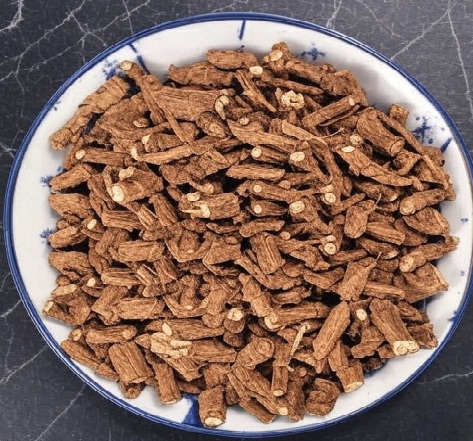Bupleurum Root

Bupleurum Root (Chai Hu): A Qi-Regulating Herb for Liver Health, Stress Relief, and Fever Alternation
Introduction
Bupleurum root, known as Chai Hu (柴胡) in Traditional Chinese Medicine (TCM), is a foundational herb used to soothe the Liver, regulate qi, and harmonize interior-exterior imbalances. Light, aromatic, and slightly bitter, Chai Hu is often used to relieve stress, PMS, emotional constraint, and conditions that involve alternating chills and fever. Its upward and outward energy makes it ideal for dispersing constrained qi and lifting the mood.
What Is Bupleurum Root?
Chai Hu refers to the dried root of Bupleurum chinense or Bupleurum scorzonerifolium, members of the Apiaceae family. In TCM, it is classified as bitter, acrid, and slightly cold, entering the Liver, Gallbladder, Pericardium, and San Jiao meridians. Traditionally, Bupleurum root is used to regulate Liver qi, release the exterior (especially in shaoyang conditions), and guide other herbs upward to the upper body. It’s a cornerstone herb in formulas designed to restore emotional and energetic balance.
Health Benefits of Bupleurum Root
Soothes Liver Qi and Relieves Stress
Chai Hu is commonly used for symptoms like mood swings, irritability, chest tension, and PMS caused by Liver qi stagnation.
Harmonizes Interior and Exterior Disorders
It is a key herb for treating alternating fever and chills, bitter taste in the mouth, and fullness in the chest.
Raises Yang Qi and Lifts Energy
Used in formulas to support prolapse or fatigue from sinking qi, such as uterine prolapse or chronic diarrhea.
Clears Heat from the Liver and Gallbladder
Helpful in cases of red eyes, dizziness, or flank pain due to heat or constraint in the Liver/Gallbladder.
Enhances the Effect of Harmonizing Formulas
Bupleurum is featured in major harmonizing formulas like Xiao Yao San and Chai Hu Shu Gan San, which treat both emotional and digestive symptoms.
How to Use Bupleurum Root
In Herbal Decoctions for Emotional or Digestive Balance
Use 3–9 grams of sliced Chai Hu with herbs like Bai Shao, Dang Gui, or Bai Zhu. Simmer for 30 minutes.
In Harmonizing Formulas for PMS or Mood Support
Found in classic formulas like Xiao Yao San, Chai Hu helps ease frustration, bloating, and irregular periods.
In Cold/Flu Patterns with Fever Alternation
Included in formulas like Xiao Chai Hu Tang to treat shaoyang disorders with symptoms that come and go.
Where to Buy Bupleurum Root
You can find Chai Hu at the following places:
- Chinese herbal medicine shops
- Asian health stores or herbal dispensaries
- Online retailers such as iHerb, Amazon, or TCM-focused websites
Look for:
- Light brown, twisted dried roots with a mildly bitter aroma
- Organic, clean-sourced, and properly stored varieties
- Whole or sliced form depending on preparation method
Are There Any Side Effects?
Bupleurum is safe when used correctly, but excessive doses may cause nausea or dizziness. It should be avoided in cases of yin deficiency with heat signs or high blood pressure without professional supervision. Caution is advised during pregnancy or when combining with immunosuppressants.
Conclusion
Bupleurum root, or Chai Hu, is a versatile and essential herb in TCM that soothes Liver qi, lifts the spirit, and restores harmony between interior and exterior energies. Whether used for stress, PMS, or unresolved fevers, this upward-moving root helps rebalance the body’s natural flow and emotional well-being.
FAQs
Can I take bupleurum root every day?
It can be used regularly as part of a balanced formula under the guidance of a qualified practitioner, especially for stress or Liver qi stagnation.
What does bupleurum root taste like?
It has a bitter, slightly acrid flavor with a subtle grassy aroma.
Is bupleurum root safe for children?
Yes, in professionally tailored formulas and low doses for specific conditions like irritability or alternating fever.

